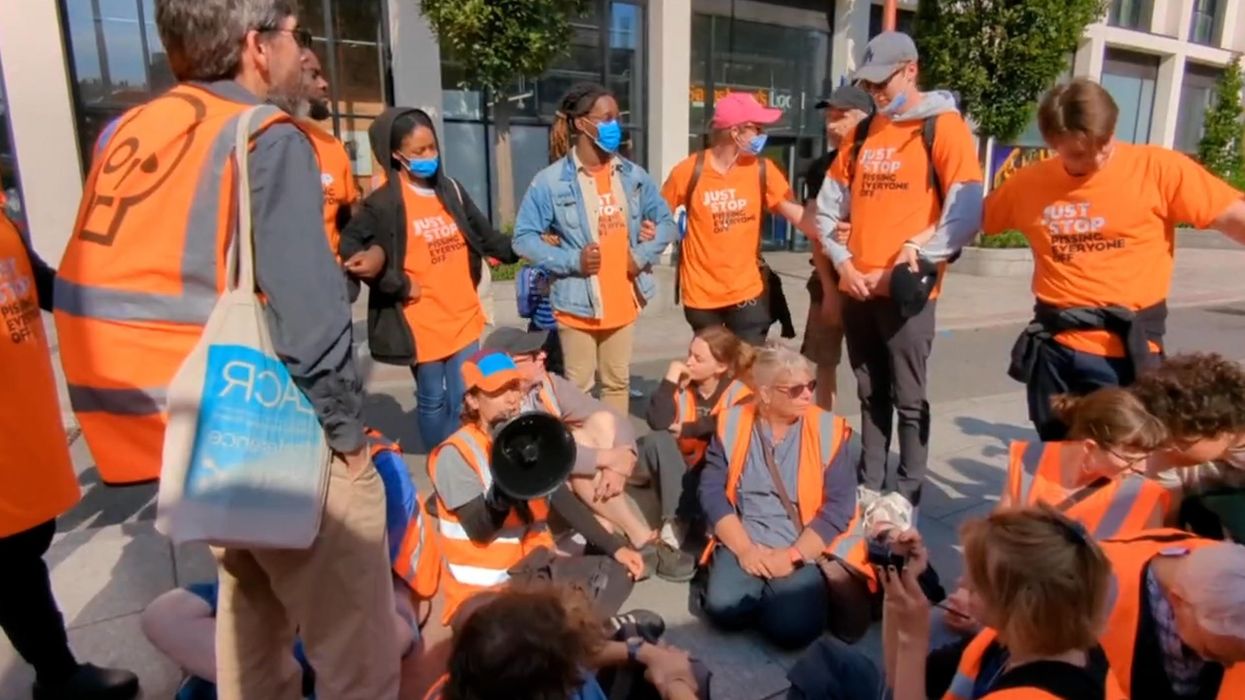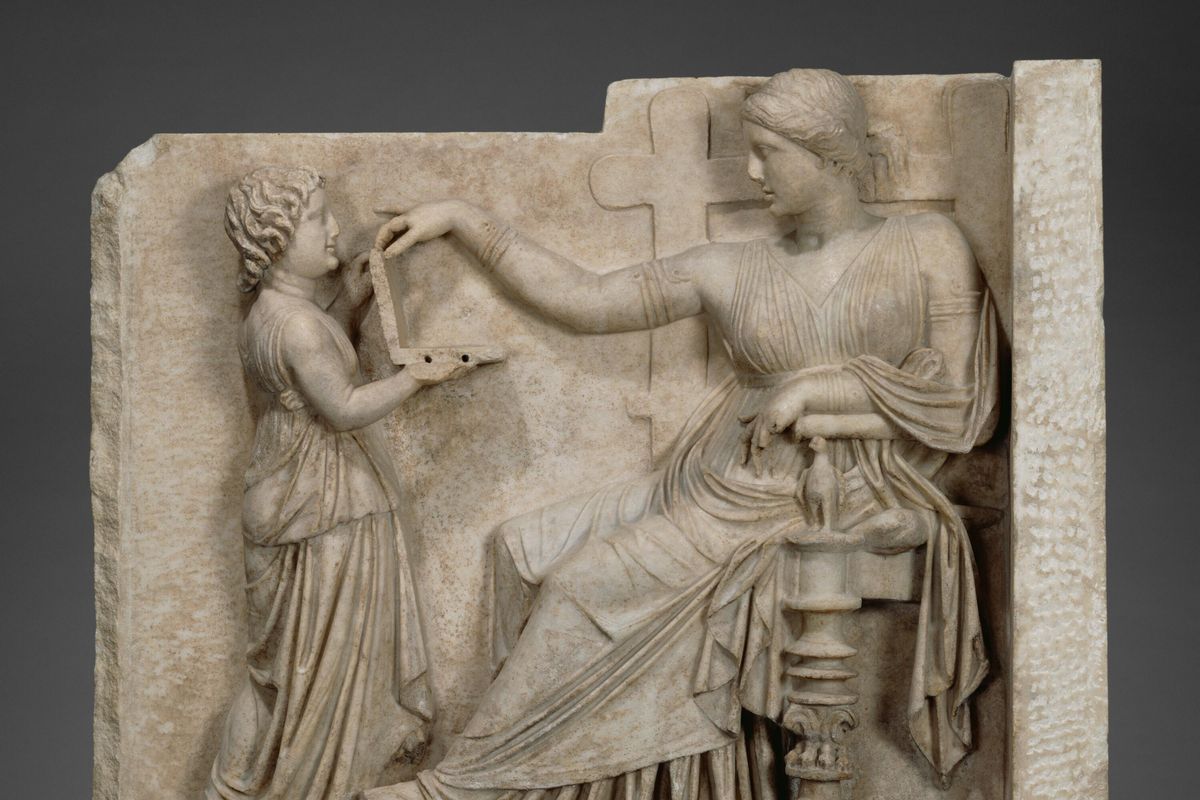Kate Plummer
Aug 01, 2023
Rebel group block Just Stop Oil from marching through London
content.jwplatform.com
They are not even two years old but Just Stop Oil has already managed to become the most controversial protest group in the UK.
The environmental protesters are “a coalition of groups working together to ensure the government commits to halting new fossil-fuel licensing and production.”
Its website says: “Allowing the extraction of new oil and gas resources in the UK is an obscene and genocidal policy that will kill our children and condemn humanity to oblivion. It just has to stop."
To this end, they disrupt high-profile sporting and cultural events, block major roads and even threw soup at a historic Van Gogh artwork last year.
But does all this work help or hinder its cause?
Sign up to our free Indy100 weekly newsletter
In some ways, stunts that attract media attention are effective in raising awareness about climate change.
Colin Davis, a professor of cognitive psychology at the University of Bristol, has run experiments to understand how people feel about disruptive protesters. He told the Financial Times: “There isn’t any compelling evidence for non-violent protest being counterproductive. People may ‘shoot the messenger’, but they do — at least, sometimes — hear the message.”
Meanwhile, a recent poll suggested people may not even want to shoot the messenger as they are against protesters being imprisoned. In research conducted by the University of Bristol, 37 per cent thought the most appropriate punishment for people who participate in disruptive, non-violent protest, such as blocking a road, should be a fine as opposed to imprisonment, which only 29 per cent chose.
Research co-investigator Dr Oscar Berglund, Senior Lecturer in International Public and Social Policy, said: “High-profile politicians and sections of the media have sought to whip up public opinion against protest as a means to justify increasingly harsh sentences. These findings indicate the public majority are not persuaded of the need for prison sentences for protesters, perhaps because they recognise there is an important role for civil disobedience in liberal democracies.”
Aside from the general public, the group has also won over some powerful celebrities who may in turn influence their fans. After it disrupted the British Grand Prix in July, racing driver Lewis Hamilton offered his support: “I love that people are fighting for the planet and we need more people like them.”
Nevertheless, given their tactics are controversial and they have been criticised for a number of stunts that have involved blocking ambulances, disrupting London Pride and comparing their activists to people who hid Anne Frank and her family during WW2, they ruffle feathers to such an extent they may stop people caring about what long-term cause the group are fighting for because these acts have such an awful short-term impact.
Indeed, according to surveys conducted earlier in 2022, soon after Just Stop Oil was formed, 58 per cent of UK adults support their demands, but 57 per cent are against the group itself.
As a result, it is unsurprising that politicians and sections of the media have spoken out against them. Take James Cleverly's reaction to the Van Gogh protest last year, for instance:
Then there are the hefty bills the group is racking up thanks to their stunts. Earlier this month, the Metropolitan police said maintaining order around the protesters had cost more than £7.7m and the equivalent of almost 23,550 officer shifts since April.
Met Assistant Commissioner Twist said: "This isn't protest, this is crime, and there is a difference.
"The right to protest is strongly protected, but when you get into deliberately causing serious disruption, that tips over into crime," he told LBC.
All this becomes even more unpalatable because of the perception that those causing this expense are privileged people shielded from the impact of stopping people from getting to work or forcing people to clean up after their mess. As Michael Deacon put it in the Telegraph last month: "Just Stop Oil protests essentially consist of middle-class people sitting smugly on their backsides, while working-class people wonder how they’re supposed to make a living."
Irritation about the group has simmered in the background for some time, but in July it came to a head when YouTube pranksters took against the group so much, they made a counter-protest group to challenge them.
The group, Just Stop P**sing Everyone Off was created by Josh Pieters and Archie Manner. They used a mole inside to find out what Just Stop Oil were getting up to then disrupted a lunch by setting off panic alarms they attached to balloons.
Wearing T-shirts that read “Just Stop Pissing Everyone Off” which imitated Just Stop Oil's iconic orange hue, they formed a human chain to stop a protest in London's Elephant & Castle.
“When you’re protesting and campaigning for things, you need to bring people with you and Just Stop Oil are having the exact opposite effect on the British public.” Pieters told Sky News Australia in an interview about the stunt.
Hardly anyone denies climate change is a real issue, but with loads of people turned off by Just Stop Oil's approach then, perhaps the answer is working in a more moderate way to avoid this debate. Jessica Townsend, co-founder of MP Watch, told the Guardian: “The rightwing press has been so effective in trashing non-violent direct action that a moderate approach might be the most effective route forward at this moment. For me, It’s about what works.
“As things stand, there is a large group of the public, who are increasingly concerned about the climate, but feel they have nowhere to go with their worries. If there are moderate, dynamic campaigns for them to join, we are likely to see more people engaged and the possibility of an alliance across all political and social groups.”
And Rupert Read, a professor of philosophy at the University of East Anglia and former Extinction Rebellion spokesman turned moderate told the Guardian: “There is no way to win on this without broad consensus. It’s not possible – you have to take the public with us. It can’t go on forever: you get more and more unpopular. And if you polarise more and more, your chances of actually winning become less and less.”
As for what Just Stop Oil themselves make of it all, a spokesperson told indy100: "We have chosen to be in civil resistance because history shows that it works. It’s brought down segregation in the US, won votes for women, removed the British from India, and helped Polish trade unionists free themselves from Soviet oppression.
"So far our methods are working. Since we started the campaign, we've achieved 92 per cent name recognition, elevating the issue of new oil, gas and coal to be a key part of the national conversation. We've also mobilised hundreds to take action with us and increased support for more moderate organisations like Friends of the Earth. Meanwhile, all the major political parties at Westminster with the exception of the Conservatives now support an end to new fossil fuel licences."
Have your say in our news democracy. Click the upvote icon at the top of the page to help raise this article through the indy100 rankings.
Top 100
The Conversation (0)














